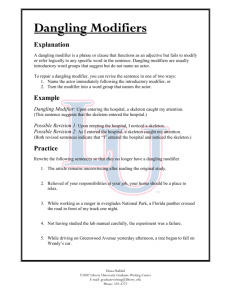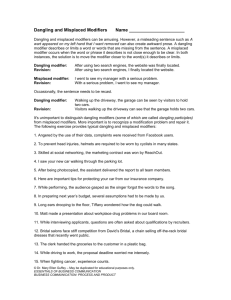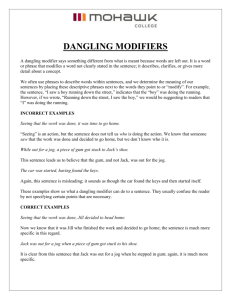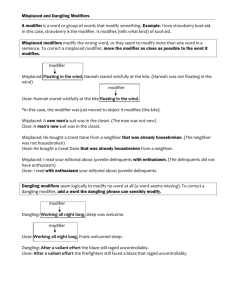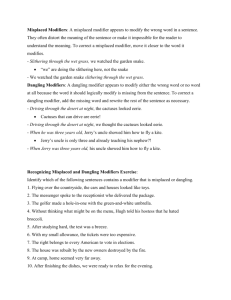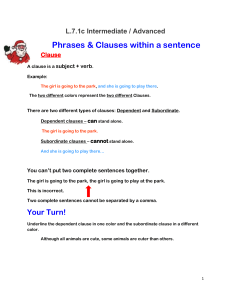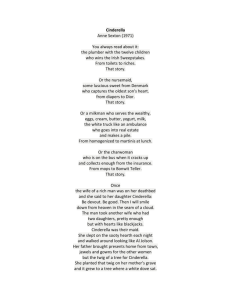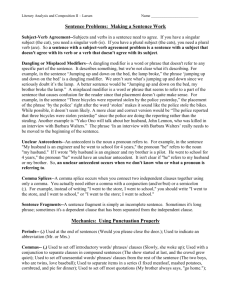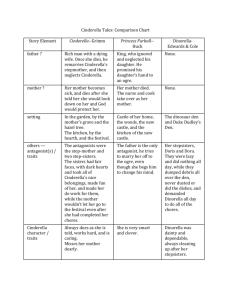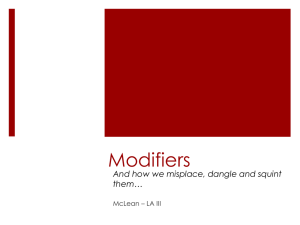Modifiers - Savannah State University
advertisement
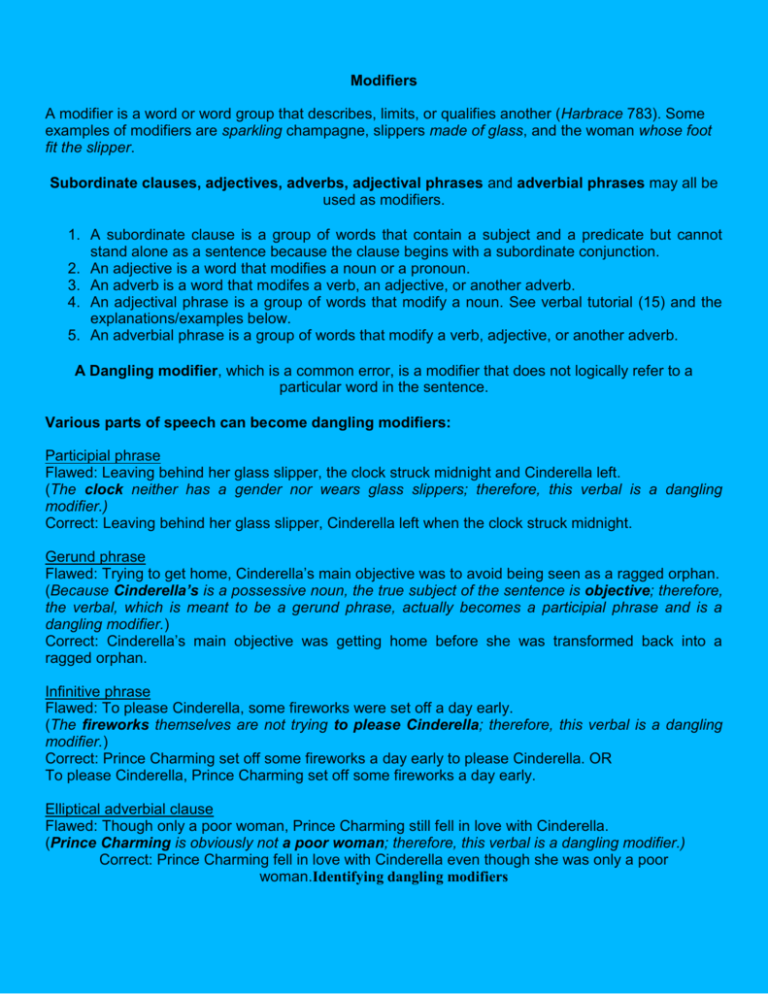
Modifiers A modifier is a word or word group that describes, limits, or qualifies another (Harbrace 783). Some examples of modifiers are sparkling champagne, slippers made of glass, and the woman whose foot fit the slipper. Subordinate clauses, adjectives, adverbs, adjectival phrases and adverbial phrases may all be used as modifiers. 1. A subordinate clause is a group of words that contain a subject and a predicate but cannot stand alone as a sentence because the clause begins with a subordinate conjunction. 2. An adjective is a word that modifies a noun or a pronoun. 3. An adverb is a word that modifes a verb, an adjective, or another adverb. 4. An adjectival phrase is a group of words that modify a noun. See verbal tutorial (15) and the explanations/examples below. 5. An adverbial phrase is a group of words that modify a verb, adjective, or another adverb. A Dangling modifier, which is a common error, is a modifier that does not logically refer to a particular word in the sentence. Various parts of speech can become dangling modifiers: Participial phrase Flawed: Leaving behind her glass slipper, the clock struck midnight and Cinderella left. (The clock neither has a gender nor wears glass slippers; therefore, this verbal is a dangling modifier.) Correct: Leaving behind her glass slipper, Cinderella left when the clock struck midnight. Gerund phrase Flawed: Trying to get home, Cinderella’s main objective was to avoid being seen as a ragged orphan. (Because Cinderella’s is a possessive noun, the true subject of the sentence is objective; therefore, the verbal, which is meant to be a gerund phrase, actually becomes a participial phrase and is a dangling modifier.) Correct: Cinderella’s main objective was getting home before she was transformed back into a ragged orphan. Infinitive phrase Flawed: To please Cinderella, some fireworks were set off a day early. (The fireworks themselves are not trying to please Cinderella; therefore, this verbal is a dangling modifier.) Correct: Prince Charming set off some fireworks a day early to please Cinderella. OR To please Cinderella, Prince Charming set off some fireworks a day early. Elliptical adverbial clause Flawed: Though only a poor woman, Prince Charming still fell in love with Cinderella. (Prince Charming is obviously not a poor woman; therefore, this verbal is a dangling modifier.) Correct: Prince Charming fell in love with Cinderella even though she was only a poor woman.Identifying dangling modifiers Does an opening phrase suggest an action without naming the actor? NO No problem Y E S Does the subject of the independent clause name the actor? YES No problem N O Revise the dangling modifier If you find a dangling modifier, revise the sentence in one of two ways: 1. Change the subject of the independent clause so that it names the actor implied by the modifier. 2. Turn the modifier into a word group that includes the actor.
